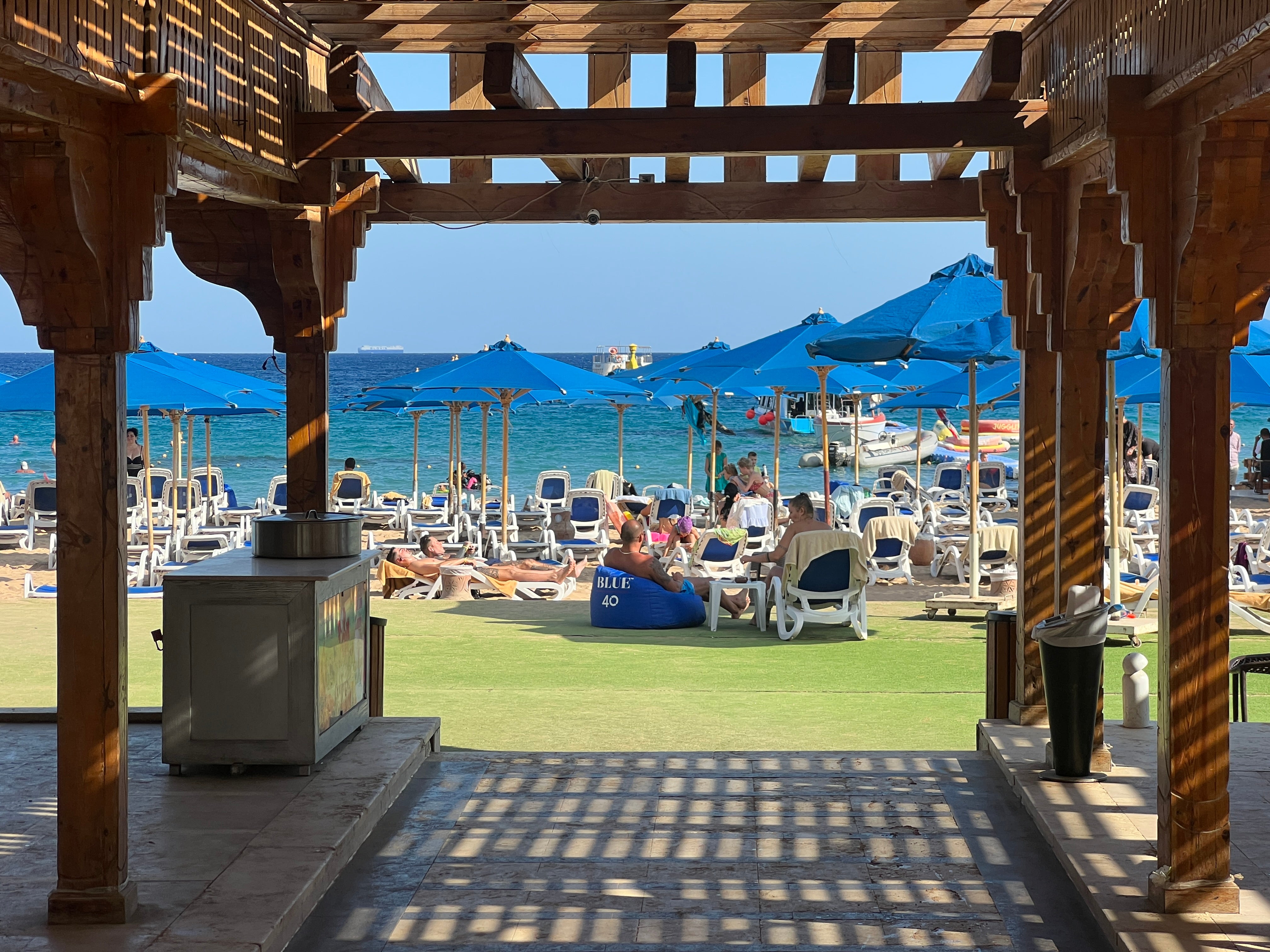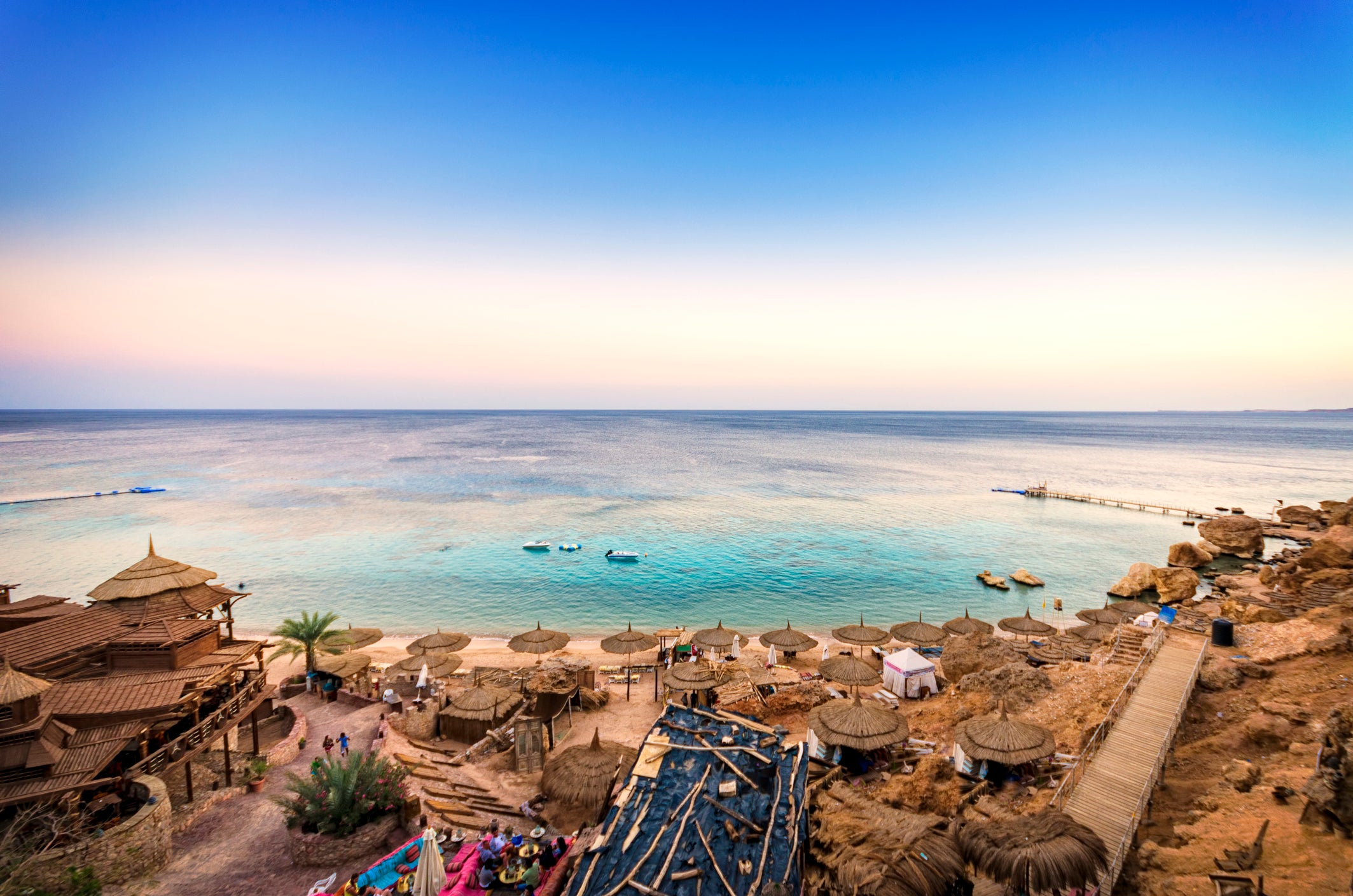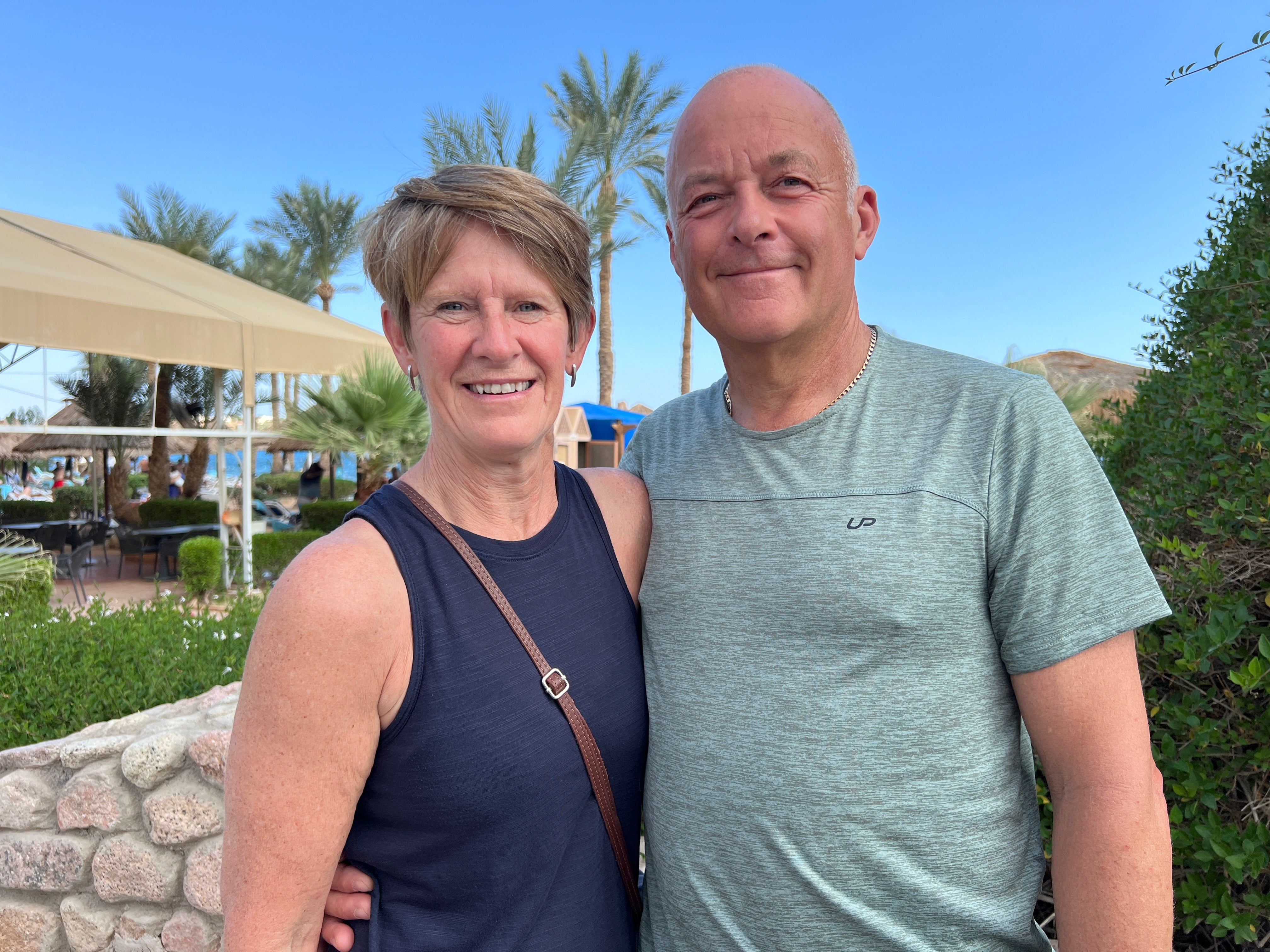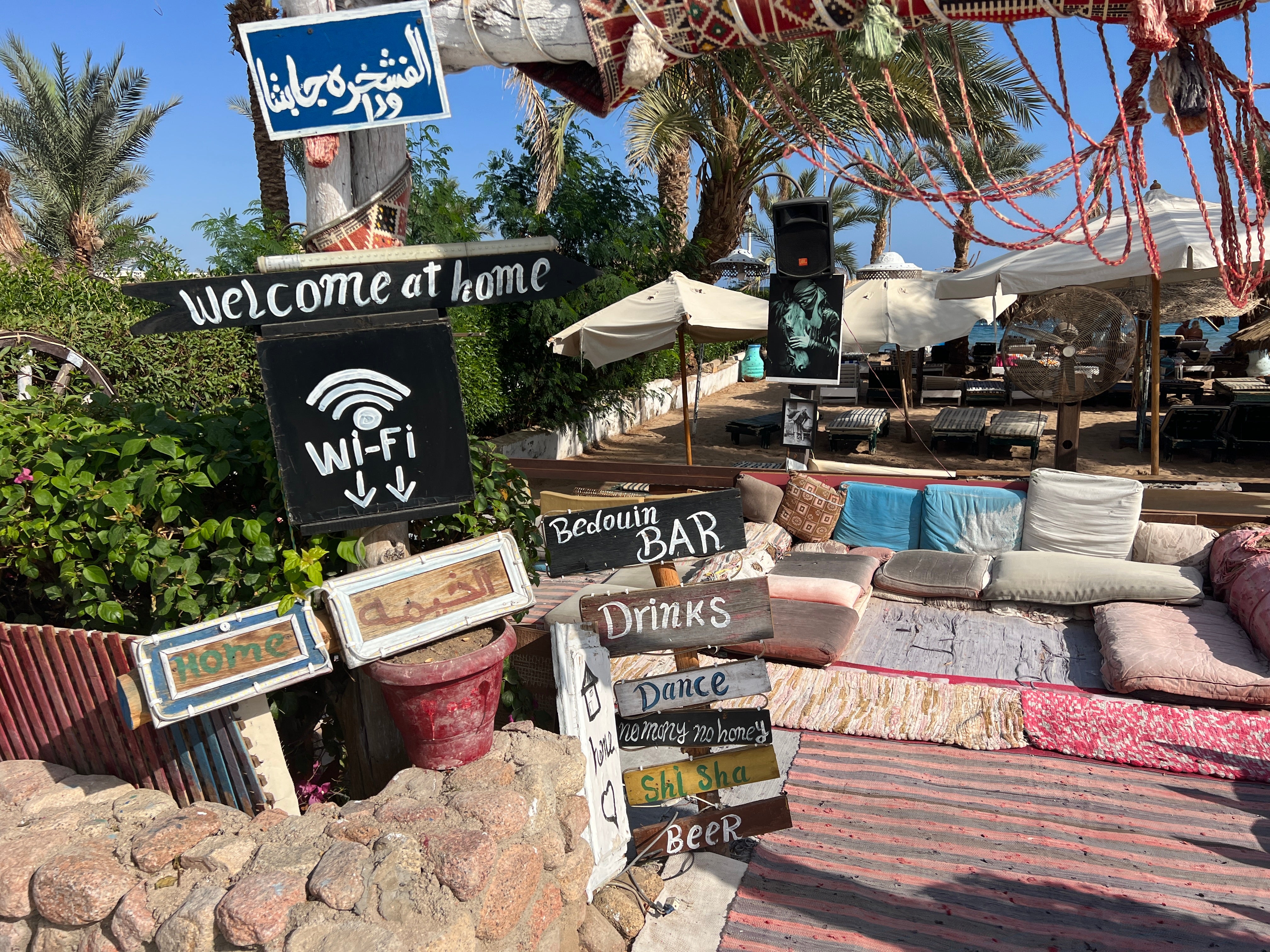The Independent's journalism is supported by our readers. When you purchase through links on our site, we may earn commission.
Bargain of the 21st century? Why I booked a holiday to Egypt – and you should, too
For under £100, travel expert Simon Calder discovers an Egypt he’s never seen so quiet before – and meets those who believe now is the time to book


What can £90 buy you in travel? A night in a budget hotel; a couple of days rental of a basic car; or a one-way Anytime ticket from Watford Junction to Coventry.
I was seeking something more exotic, so I chose a flight to Egypt and back, where, right now, £90 can buy you over 4,500 miles of air travel. Next Saturday, 25 November, on Wizz Air from Luton, returning after three, five or seven nights away.
It feels wrong. Considering Air Passenger Duty on the outbound leg is £87, that does not leave much of a margin for the airline. People who believe aviation is already too cheap will be outraged. I have sympathy for that view.
Airlines piled in capacity from the UK to Egypt this winter, with 10 new routes. They had been planned for months. But after the 7 October attack by Hamas on Israel, and subsequent humanitarian crisis in Gaza, demand evaporated faster than seawater after a dip in a Red Sea bay.
So this week I decided to fill one of the empty seats and exchange wintry gloom for Red Sea sunshine.

Of course, getting a cheap return ticket from Luton airport to Sharm El Sheikh is only part of the cost – broadly, I spent about five times as much as the original investment. For smooth progress, I entrusted the local arrangements to a specialist, Discover Egypt, which uses an excellent local company, Wings.
The Sinai Peninsula, over which Sharm presides, is an easy place to be happy. Crumbling mountains cast shadows beneath a benevolent sun. Desert that melts into the horizon. Turquoise, translucent sea protecting some of the world’s most accessible coral. Plus the biggest range of all-inclusive resorts south of Suez – whose staff are uniformly friendly, obliging and fun.
Yet Sharm El Sheikh is quieter than I have ever known it. The Russians are coming, in their droves. Moscow, Sochi and St Petersburg appear more frequently than other cities on the arrivals board at Sharm’s airport. You can hardly blame them: five hours’ flying time due south from St Petersburg (with a slight diversion to avoid Ukraine) takes them from 60 degrees north to just 28, which happens to be the Celsius temperature this week on (and in) the Red Sea.
But other nationalities are noticeable by their absence – in particular Israelis. They opened up tourism in Sinai during the 15 years in which Israel occupied the area. The original little white holiday houses they built are still in evidence on the hill above the southern tip of Sharm.
Forty years on from handing back Sinai to Egypt, Israelis still cross the border from Eilat in search of natural beauty and low prices.
But not while there’s a war on. The Israelis are absent – along with large numbers of British, German and French tourists. Many group trips have cancelled and most cruise lines are giving Egypt a wide berth. It was harder to find British holidaymakers in Sharm than I can remember.
“We were apprehensive when we read the news in the build-up to coming,” says Terry Watson from Lincoln. I met him as he celebrated his 60th birthday on holiday in Sharm El Sheikh with his wife Sarah. They booked the trip 10 weeks in advance.
“Where do we want to go to get some winter sun? And this was on the tick list,” he says.
Sarah Watson adds: “I feel safer here than I would do in Spain. I think it is all the security that’s here. I mean, the first time when we first came was like: ‘Oh my Lord!’”
Terry interjects: “Check this. Check that. A lot of checks.”

Security is tight in Sharm El Sheikh, with multiple police checkpoints, a Berlin Wall-style barrier on the edge of the resort and airport protocols that are among the toughest I have found anywhere.
With good reason: Sharm was targeted by suicide bombers in 2005, and a decade later a Russian charter flight was bombed out of the sky shortly after take-off to St Petersburg, killing all 224 passengers and crew. The UK and other countries put Sharm El Sheikh on the “no-go” list, with the British ban on flights lasting for four years. Within five months, the borders were closed again because of Covid.
Everyone working in tourism had pinned their hopes on this winter.
“Just recently we had this feeling that things are starting to be stable,” says Nino, a dive instructor. “We see more people start to come like before. Straight away, there were more people walking in the streets and we felt happier.
“But then all of a sudden, this is happening next door. And now I think everybody feels a little bit down with what’s going on.
“I guess one country does some cancellation and then the rest follow.”
The travel industry responds as it always has, by cutting prices – hoping the number of new bookings will exceed the cancellations.
“The prices dropped and I took advantage of that,” says Chris Field from Lancaster. “And I’m very glad that I did.”
He has been coming to Sharm El Sheikh for nearly 20 years.
“The weather is pretty reliable all times of year. The sea temperature is pretty good all times of year: 28, 29, 30 degrees in the sea. I’ve got a washing programme at home that reaches those temperatures. The coral, the sea life and the hospitality – the hospitality is second to none. It’s absolutely brilliant. I love it here. Love it.
“Since I’ve been in Sharm, there’s been no trouble at all. Wonderful hospitality, great food. The weather’s been fantastic and the diving is great. The corals, the sea life: absolutely brilliant.
“Don’t believe all you hear. Although to my own personal advantage, before booking I left it a couple of weeks. And – what do you know? – the prices dropped.”

While Sharm is the domain of the all-inclusive resort, Suzy Murdoch and Mark Dalton from Brighton put together a DIY snorkelling trip at Dahab, along the coast.
Suzy’s main concern is not safety but overtourism: “Dahab has still got its magic – but I don’t know what it’s going to be like in 10 years time – whether it’s going to be a new Sharm.”
Overtourism seems a distant dream for the tens of thousands of workers who depend on tourism.
“They pinpoint that date: October 7th,” says Suzy. “Come. They need our money. They’re helpful, generous.”
Tourism is the most effective means that humanity has so far found to transfer wealth from richer countries to poorer nations, creating many jobs in the process. Including Osama’s. He is branch manager for Wings, and guided me through the airport and into a very agreeable and inexpensive resort, the Maritim Jolie Ville.
“When I started in 2007, just three years and we’re having a revolution in Egypt in 2011. And then we’re having another revolution in 2013. And then we have the Russian flight crash in 2015. And then we have the Covid pandemic in 2019.
“So we’ve always been affected by the hard times. Tourism is one of the things that is really affected by other things around. We get used to that.”
In the industry of human happiness,, optimism abounds. Osama believes the good times can return. It’s just a matter of enticing travellers and then they will spread the message about the low-cost, high-temperature welcome in Egypt.
“Ask the people who have already been here,” he advises. “Travellers are the best media.”
Join our commenting forum
Join thought-provoking conversations, follow other Independent readers and see their replies
Comments